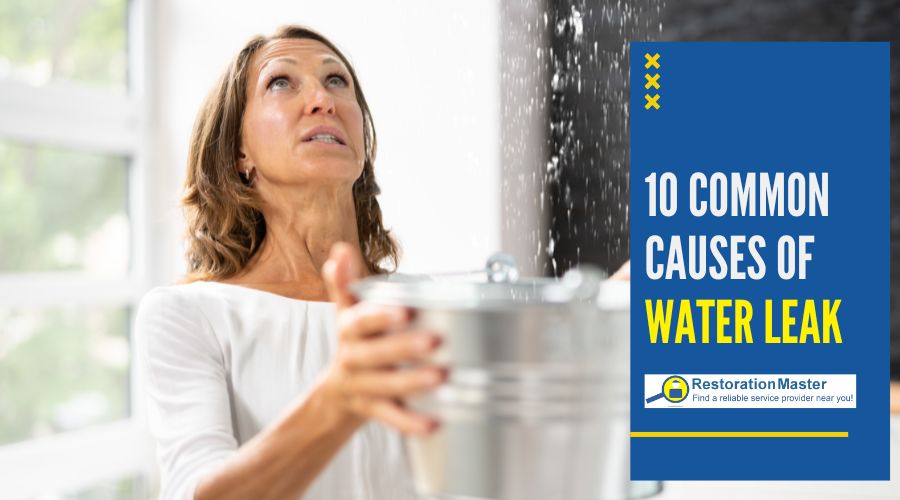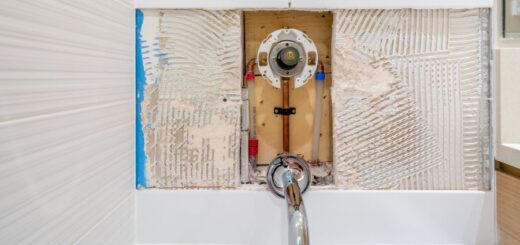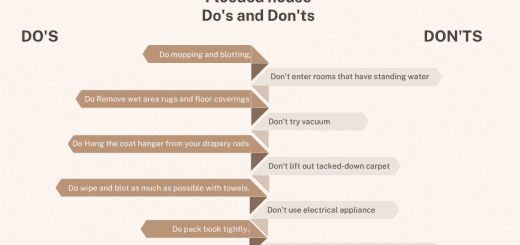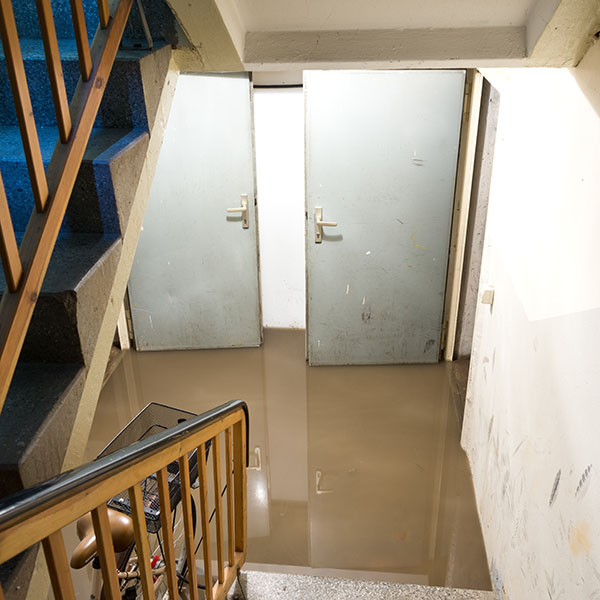10 Most Common Places Water Leaks Occur and How to Detect Them Early

Summary: Leaks often start small but can leadLead is a heavy metal that can be toxic to humans, especiall... More to major damage if ignored. We break down the top 10 places leaks show up most—and share simple ways you can spot them early before they cause trouble.
Have you ever found a mysterious puddle in your home and had no idea where it came from?
You’re not alone. Water leaks are among the most overlooked but costly problems a homeowner can face. According to the Environmental Protection Agency (EPA), the average household loses nearly 10,000 gallons of water each year to leaks—and many go unnoticed until serious damage has already occurred.
Whether you’re dealing with a sudden pipe burst or a slow leak behind the walls, the key is to act fast. The longer water goes undetected, the more extensive and expensive the damage becomes.
So, where should you start looking? Below are the 10 most common places water leaks occur in homes, along with tips for detection, preventionPrevention refers to actions taken to reduce the likelihood ... More, and what to do if you find damage.
1. Water Heaters – One of the Most Common (and Overlooked) Leak Sources
In nearly 1 out of every 5 residential water loss claims we handle, the culprit is a leaking or ruptured water heater. Most homeowners don’t realize these units have a lifespan of 8–12 years, after which corrosion and mineral buildup start to silently eat away at the tank.
We often find:
- Rust-colored water near the drain valve
- Damp flooring in adjacent closets or walls
- Hissing or popping sounds indicating pressure or sediment issues
Why it’s dangerous:
A full tank rupture can release 40–80 gallons of water instantly, floodingFlooding is the overflow or accumulation of water in areas t... More surrounding areas and even causing electrical hazards.
Our professional advice:
Don’t wait for the “big burst.” If your water heater is 10+ years old or showing signs of age, consider a proactive replacement. Install a leak detection sensor with automatic shut-off for extra protection—especially if your water heater is in an attic or upper floor.
2. Toilets – Small Leaks That Lead to Big Repairs
Toilets are responsible for more hidden subfloorThe subfloor is the foundational layer beneath flooring mate... More rot and microbial growth than most people realize. The wax ring seal can deteriorate over time, letting water seep out below the surface with every flush.
We often find:
- Loose or wobbly base
- Discoloration on floors or ceilings below
- MoldMold is a type of fungus that grows in damp or humid conditi... More smells in half-baths or powder rooms
Pro insight:
Most toilet leaks aren’t from overflow—they’re from long-term seepageSeepage is the slow movement of water or other fluids throug... More around the flange or tank bolts. By the time you see a water stain, the floor joists may already be compromised.
Preventive tip:
We recommend replacing wax rings every 5–7 years and upgrading to a rubber gasket seal for longer-lasting protection. Always secure the toilet base properly to prevent movement.
3. Pipes – Especially in Uninsulated or Hidden Areas
Whether it’s a winter freeze or a slow corrosion leak, pipes are one of the top sources of devastating water losses. Older homes with galvanized steel or copper lines are especially vulnerable.
We commonly see:
- Hairline cracks from expansion and contraction
- Pinhole leaks that slowly destroy wall insulationInsulation is a material used in buildings to reduce the tra... More and drywall
- Condensation on pipes in humid basements or crawlspaces
Winter warning:
Frozen pipes don’t always burst during the freeze—the rupture often occurs as they thaw, creating a sudden gush of water in vulnerable spaces.
What we do:
During inspections, we use infrared cameras and non-invasive moisture meters to locate hidden leaks behind walls or under floors. We also help homeowners install smart leak detectors for high-risk zones.
4. Refrigerator Ice Makers – Tiny Tubes, Massive Consequences
The thin plastic or rubber water lines behind your fridge might seem harmless—but they are a leading cause of undetected kitchen leaks. A slow drip behind cabinetry can warp hardwood, degrade subflooring, and invite moldMold is a type of fungus that grows in damp or humid conditi... More.
We’ve replaced entire kitchen floors due to a $4 plastic connector failure.
Pro-level fix:
Replace plastic or rubber tubing with braided stainless steel or copper lines. During routine appliance maintenanceMaintenance is the routine care, inspection, and repair of a... More, always inspect the shutoff valve and check for kinks or moisture.
5. HVAC Systems – Condensation Is the Enemy
When air conditioners run for hours—especially in humid areas—they produce gallons of condensation daily. If the condensate drain line clogs or the pan overflows, you may not notice until ceilings sag or moldMold is a type of fungus that grows in damp or humid conditi... More appears in nearby drywall.
Common issues we address:
- Overflowing drip pans
- Clogged or kinked drain lines
- Leaky refrigerant lines soaking insulationInsulation is a material used in buildings to reduce the tra... More
How we help:
We inspect all HVAC drainage components, clear buildup in condensate lines, and recommend installing a float switch that shuts off your A/C if the water pan overflows.
6. Washing Machines – One of the Most Costly Water Offenders
A washing machine uses up to 30 gallons per load. That’s a lot of water pressure—and if your hose bursts or slips free, water can spill into the laundry room and beyond within minutes.
We’ve seen:
- Water cascading into the level below
- Damage to drywall, trimTrim is the decorative or functional molding used to finish ... More, and electrical
- MoldMold is a type of fungus that grows in damp or humid conditi... More growing behind machines after weeks of unnoticed leaks
Protective upgrades we recommend:
- Braided stainless steel hoses (lasts 5x longer than rubber)
- Automatic shut-off valves
- Drip pans with floor drains, especially for second-floor laundry rooms
- We also recommend cleaning your washing machine frequently.
7. Gutters & Downspouts – External Issues with Internal Impact
Gutters might be outside your house, but they’re one of the most common causes of basement floodingFlooding is the overflow or accumulation of water in areas t... More. Improper drainage allows water to pool at the foundation, where it seeps into cracks or overwhelms sump systems.
What we look for during inspections:
- Overflowing gutters due to clogs
- Detached downspouts dumping water near basement windows
- Erosion or depressions near the foundation
Our advice:
Install gutter guards, clean your gutters every spring and fall, and extend downspouts to direct water at least 6–10 feet from your foundation.
8. Bathrooms – Hidden Moisture Hotspots
Showers, sinks, and tubs are constantly exposed to water—and many homeowners underestimate how easily it slips past tile or caulking. Over time, even minor gaps can leadLead is a heavy metal that can be toxic to humans, especiall... More to structural rot or moldMold is a type of fungus that grows in damp or humid conditi... More.
We often uncover:
- Water seeping through cracked grout
- MoldMold is a type of fungus that grows in damp or humid conditi... More behind shower walls
- Rusted sink fittings or faulty shut-off valves
Professional guidance:
Re-caulk and re-grout annually if your home sees heavy use. Inspect vanity cabinets for water staining or swelling. For tiled showers, invest in a waterproofingWaterproofing is the application of materials or coatings de... More membrane system during remodels.
9. Sump Pumps – Your First (and Last) Line of Defense
A sump pumpA sump pump is a pump installed in a basement or crawlspace ... More failure during a storm can turn a dry basement into a wading pool in under an hour. We’ve seen full basements destroyed simply because the pump wasn’t tested in years.
Signs of trouble:
- Murky or stagnant water in the pit
- Strange noises or vibrations
- No activity during heavy rain
Best practices we stand by:
- Test your pump every 3 months
- Install a battery backup and water alarm
- Keep your discharge line free of debris and ice in winter
10. Air Ducts – The Moisture You Don’t See
While not always a source of “leaking” in the traditional sense, improperly insulated ductwork can cause serious moisture buildup, especially in attics or humid basements.
We’ve seen:
- MoldMold is a type of fungus that grows in damp or humid conditi... More growth around vents
- Ceiling stains near registersRegisters are grilles or vents that cover openings in HVAC s... More
- Rotting joists in crawlspaces
What we do:
We inspect ductwork for condensation issues and recommend insulationInsulation is a material used in buildings to reduce the tra... More or vaporVapor is the gaseous form of a substance that is typically l... More barriers where needed. Airflow balancing can also reduce humidityHumidity is the amount of moisture or water vapor present in... More build-up in high-risk areas.
What to Do If You Suspect a Water Leak
Not all water damage is obvious. Sometimes it starts with a musty odorAn odor is a smell, often detectable by the human nose, whic... More, a discolored wall, or warped flooring. If something seems off in your home, there’s a good chance water is hiding where it shouldn’t be.
Here’s what we recommend you do as soon as you notice the signs:
- Shut off the water supply if you know where it’s coming from
If you can trace the leak to a specific fixture—like a toilet, sink, or washing machine—turn off the water to that area. If the source isn’t clear or water is spreading quickly, it’s best to shut off the main water valve to stop further damage. - Stay clear of electrical hazards
Never walk into a wet area if the power is still on. Water near electrical outlets, light fixtures, or appliances can be extremely dangerous. If you can access the breaker box safely, turn off the electricity in the affected area and wait for professionals to arrive. - Document everything for your insurance
Take photos and videos of the damage before cleaning up. This includes flooring, walls, belongings, and any visible signs of moisture or moldMold is a type of fungus that grows in damp or humid conditi... More. Clear documentation helps support your insurance claim and ensures you’re covered for repairs. - Call RestorationMaster for immediate help
We respond to emergencies 24/7, and our water damage restoration team is usually on-site within two hours. From the moment we arrive, we focus on stopping the water, dryingDrying is the process of removing moisture from materials, s... More the space, and preventing further issues like moldMold is a type of fungus that grows in damp or humid conditi... More growth or structural damage.
How to Detect Water Leaks | Video
1. Monitor Your Water Meter
A quick and easy way to check for leaks is to use your home’s water meter:
- First, make sure no water is being used inside or outside the house—no faucets running, appliances off, and no irrigation systems active.
- Locate your water meter (usually near the street or in a utility area).
- Write down the number showing on the meter.
- Wait for 1-2 hours without using any water, then check the meter again.
- If the number has changed, even slightly, it could mean water is flowing somewhere in your plumbing system—signaling a leak.
2. Use Moisture Meters
Moisture meters are handheld devices designed to detect moisture levels inside walls, floors, or ceilings without causing damage. These tools give immediate readings that can indicate damp areas hiding behind surfaces.
While professionals carry high-grade moisture meters, there are affordable consumer models you can buy or rent to check suspect areas like:
- Under sinks and appliances
- Around baseboards
- Near toilets or water heaters
If you detect elevated moisture levels where there shouldn’t be any, it’s time to investigate further or call an expert.
3. Infrared (Thermal) Imaging
Infrared cameras allow us to “see” temperature differences in walls and ceilings, which can highlight moisture accumulation. Wet areas often appear cooler than dry spots, helping pinpoint leaks hidden behind drywall or insulationInsulation is a material used in buildings to reduce the tra... More.
While infrared cameras are typically professional tools, some smartphone attachments and rental options are available for homeowners who want to inspect their own homes.
4. Look and Listen
Sometimes the simplest ways are the most effective:
- Listen closely near suspect plumbing or walls for dripping or running water sounds.
- Check for warpingWarping is the bending, twisting, or distortion of materials... More, bubbling paint, or discoloration on walls and ceilings.
- Smell for musty or damp odors, especially in basements, crawlspaces, or behind appliances.
DIY vs Professional Inspection: When to Check Yourself and When to Call Experts
| InspectionInspection is the careful examination and assessment of a pr... More Area | DIY InspectionInspection is the careful examination and assessment of a pr... More | When to Call a Professional |
|---|---|---|
| Under Sinks & Around Toilets | Look for visible leaks, wet spots, loose connections, and signs of moldMold is a type of fungus that grows in damp or humid conditi... More or water damage on cabinets and floors. | If you detect persistent moisture, foul odors, or damage beyond minor leaks, or if plumbing repairs are needed. |
| Water Heater & Pipes | Check for puddles, rustRust is a reddish-brown oxide that forms on iron or steel du... More stains, or hissing noises near accessible parts. | If corrosion is visible, if you suspect a burst or hidden leaks inside walls or ceilings, or for regular maintenanceMaintenance is the routine care, inspection, and repair of a... More. |
| Appliances (Washer, Fridge) | Inspect hoses and supply lines for cracks or wetness. Tighten fittings if loose. | Call for leaks behind walls, under floors, or if damage to floors or cabinetry is evident. |
| Gutters & Downspouts | Clear leaves and debris; watch for overflow during rain. | If water pools near the foundation or you notice basement dampness or floodingFlooding is the overflow or accumulation of water in areas t... More signs. |
| Basement & Crawlspaces | Visual check for dampness or musty odors. | When signs of moldMold is a type of fungus that grows in damp or humid conditi... More, water intrusion, or structural damage appear or after storms/flooding events. |
| Ceilings & Walls | Look for stains, peeling paint, or bubbling wallpaper. | If stains grow, leaks continue, or moldMold is a type of fungus that grows in damp or humid conditi... More is visible—especially if you can’t find the source. |
Call Local Pros From RestorationMaster To Fix and Cleanup After Water Leaks
While you will need a plumber to fix any pipes or leaks, fixing the water damage is crucial to prevent additional destruction. Once an area has been affected, the water will spread and damage additional areas. But as soon as the source has been removed, don’t hesitate to call a water damage repairRepair is the act of fixing or restoring damaged property, m... More professional.
Widely known as the nation’s top restorationRestoration is the process of returning a property to its pr... More company, RestorationMaster specializes in water damage mitigation. Their professionals are available 24/7 and will arrive within 2 hours of your initial call to prevent the damage from spreading, dry out the affected areas, and restore the property structureStructure refers to the framework or components of a buildin... More. You can count on them to return building materials of all types to their original condition. They will even work with your insurance provider to allow you to focus on other matters.
Frequently Asked Questions
Why is my air conditioner leaking water?
If your air conditioner is leaking water, it could be for a few reasons. One common issue is a clogged drain line, which can stop water from draining properly. Another possibility is a dirty air filter, which can cause excess condensation and leadLead is a heavy metal that can be toxic to humans, especiall... More to leaks. Low refrigerant levels or a damaged drain pan might also be to blame. To prevent leaks, it’s a good idea to keep up with regular maintenanceMaintenance is the routine care, inspection, and repair of a... More and cleaning.
How to test a water line for leaks?
If you suspect a leak but aren’t sure, follow these simple steps to check your water line effectively. This quick guide will help you identify any potential issues before they become major problems.
- Turn Off Water Supply: Shut off the water supply to the line you want to check.
- Check Water Meter: Note the water meter reading and wait for a few hours without using any water.
- Recheck Meter: Check the water meter again. If the reading has changed, there may be a leak.
- Inspect Visible Pipes: Look for any visible signs of leaks, such as water stains or dripping.
- Use Food Coloring: For toilet leaks, add a few drops of food coloring to the tank. If it seeps into the bowl without flushing, there’s a leak.












